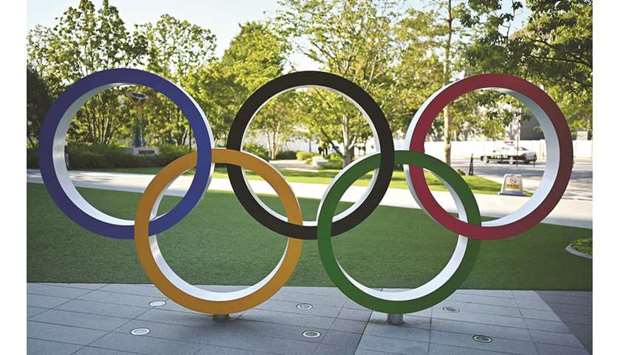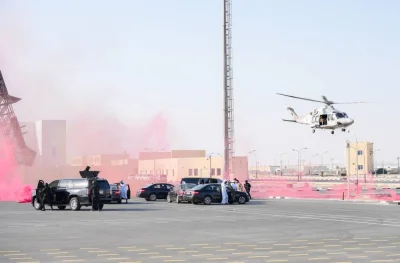Japan said yesterday it would take countermeasures to ensure next year’s Tokyo Olympics are not derailed by cyberattacks after Britain and the United States accused Russia of orchestrating efforts to disrupt the Games.
Olympics organisers reported no significant impact on their operations for the 2020 Games, which were postponed until next year due to the Covid-19 pandemic. Britain and the United States on Monday condemned what they said were a series of malicious cyberattacks orchestrated by Russian military intelligence, including attempts to disrupt the Tokyo Olympics and Paralympics.
Kremlin spokesman Dmitry Peskov denied the allegations, attributing them to “Russophobia”. He told reporters: “Russia has never carried out any hacking activities against the Olympics.”
Japanese chief cabinet secretary Katsunobu Kato said Japan would make every effort to protect the Games from possible hacking attempts. “We cannot turn a blind eye to malicious cyberattacks that threaten democracy,” Kato told a news conference, adding that Japan was gathering and analysing information and in close contact with Britain and the United States. “The Olympics are a major international event that attract attention, and cybersecurity measures are extremely important.”
British officials said on Monday the hackers from Russia’s GRU military intelligence agency had also conducted “cyber reconnaissance” operations against Tokyo Games organisers. They declined to give specific details about the latest attacks or say whether they were successful but said they had targeted Games organisers, logistics suppliers and sponsors.
The organising committee said in a statement they had already made extensive cybersecurity preparations and that there had been little disruption to its platforms. “While we have constantly monitored various types of cyberattack on the digital platforms owned by Tokyo 2020, no significant impact has been observed in our operations,” spokesman Masa Takaya said.
Olympic sponsor Panasonic Corp said in a statement it was strengthening its global monitoring efforts, adding: “We did not detect any evidence of an attack.” A representative for fellow sponsor Toyota Motor Corp declined to comment.
A string of hacking attempts have been conducted against international sporting organisations which Western officials and cybersecurity experts say were orchestrated by Russia since its doping scandal erupted five years ago. Moscow has repeatedly denied the allegations.
Russia was banned from the world’s top sporting events for four years in December over widespread doping offences, including the Tokyo Games. An International Olympic Committee (IOC) spokesman said cybersecurity was one of their priorities.
“The IOC and the Organising Committees of the Olympic Games have identified cyber security as a priority area and invest a lot to offer the Olympic Games the best cyber security environment possible,” the spokesman said in an email. “Given the nature of the topic, we do not divulge those measures.”
The UK is the first government to confirm details of the breadth of a previously reported Russian attempt to disrupt the 2018 winter Olympics and Paralympics in Pyeongchang, South Korea. It declared with what it described as 95% confidence that the disruption of both the winter and summer Olympics was carried out remotely by the GRU unit 74455. In Pyeongchang, according to the UK, the GRU’s cyber-unit attempted to disguise itself as North Korean and Chinese hackers when it targeted the opening ceremony of the 2018 winter Games, crashing the website so spectators could not print out tickets and crashing the Wi-Fi in the stadium.
The key targets also included broadcasters, a ski resort, Olympic officials, service providers and sponsors of the games in 2018, meaning the objects of the attacks were not just in Korea. The GRU also deployed data-deletion malware against the winter Games IT systems and targeted devices across South Korea using VPNFilter malware.

The Olympic Rings is pictured in Tokyo yesterday. (AFP)


